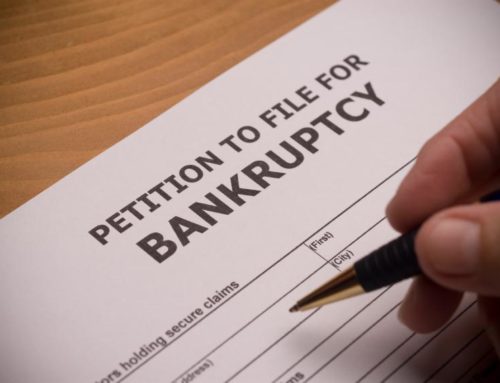A bankruptcy filing is not an easy way out of debt. You will be faced with challenges that involve a mountain of paperwork. The Bankruptcy Forms in itself includes 23 separate forms totaling roughly 70 pages. The forms ask you about everything you make, spend, own and owe. Clearly, this burdensome requirement is a major setback when you are facing a foreclosure auction, repossession, wage garnishment, collection lawsuit, or any other time-sensitive situation. However, while this task can be daunting, and other times, discouraging, it should not stop you from appreciating the rewards you will reap later on. Your bankruptcy filing may be the solution to wiping out unsecured debt. It may also mean you can stop foreclosure and repossession. When you file for bankruptcy, you have something to look forward to a fresh start. Of course, you must also do your part by being truthful of all information you present relative to your financial situation.
When you decide to file for bankruptcy, expect to provide certain documents to your attorney for analysis and submission to the bankruptcy court. As you fill out your bankruptcy petition, you will need to disclose information about your financial affairs, such as income and expenses, assets and debts, and property transfers. Also, you’ll need to provide certain documents to the bankruptcy trustee to prove the accuracy of the information provided.
Whether you are filing a Chapter 7 bankruptcy or Chapter 13 bankruptcy, the documents required are almost the same. There may be variations based on what your bankruptcy trustee specifically asks for. Some trustees demand more proof although some required documents may be depended on the circumstances of your case. Here is a rundown of some of the required documents when filing bankruptcy cases in West Virginia:
Basic Personal Information
When you meet with the trustee, you will be asked to establish your identity by presenting a valid photo identification showing your full name. You will also need to provide proof of your social security number.
Debts
Bankruptcy is about debt. That means you need to show that you have debts that you can’t pay. In order to have the court discharge your debts, you need to show the court what those debts are. It is best if you are able to present any current bills received via mail because these may not have been included in the credit report. If in any way, there are other outstanding bills you may not have included because you are not aware of their existence, you can add it to your case, provided that these charges were posted before you filed for bankruptcy. A credit report is helpful in this requirement.
Tax Records
You need to provide the last two years of your income taxes in a Chapter 7 case, and four years in Chapter 13, ideally through complete tax forms or you can order a tax transcript from your state and federal taxing authorities. The tax transcript shows a summary of all of your tax details. Since this is an official document, it is sufficient proof of your tax records. If you have a business, you also need to provide taxes related to the operations such as payroll tax. If, for example, your only source of income was nontaxable disability benefits, you need to explain that you were not required to file. Usually, a concise explanation letter that presents the reasons why you have unfiled returns will suffice. If you merely failed to file, be ready to do so because the trustee will surely require you to submit copies before concluding or approving your case—especially in a bankruptcy Chapter 13 case. It is better if you make sure to file your taxes before or at least shortly after your bankruptcy petition. This lessens the risk of having your bankruptcy case dismissed just because you missed the deadlines. If you’re filing taxes from previous years right before filing for bankruptcy, you can file your taxes at the actual IRS and state tax offices. They will give you stamped proof that you’ve at least filed your taxes. Through this, you have prevented your bankruptcy trustee from trying to dismiss your case because they are aware that your taxes have been filed officially.
Proof of Income
You will need to prove eligibility by pay stubs as proof of your regular income for the last six months before you file bankruptcy. If you cannot provide pay slips because you are retired, you can provide a social security statement or a statement about a pension. Other sources of income such as disability benefits, investment income, or rental income from properties may also be presented. If you are self-employed and filing for bankruptcy, you may still have to supplement your taxes with more recent proof of your current income. A year-to-date profit and loss statement, as well as for the two full years before filing, might be required to accomplish this. Business bank statements may serve as supporting documents to your profit and loss statement. The bankruptcy court is going to look at documents that verify your income to make sure that you file the right type of bankruptcy case.
Real Estate Deeds / Mortgage Statement/ Car Loan Statement
If you own real estate, you’ll likely need to provide proof of the property’s fair market value. Valuations or appraisals of any real estate you own or copies of vehicle registration are examples of supporting documents. If you have any existing mortgage. you will need to provide supporting documents for it such mortgage statements showing current loan balances and payment amounts. Some trustees also require the deed of trust and proof of home insurance. The reason why your bankruptcy attorney needs your mortgage statement is to check if you are current in your monthly payment or if you are falling behind on your mortgage. Another reason why you need to provide your mortgage statement is that there is a limit to the equity you can protect. Your bankruptcy lawyer is going to review your outstanding balances and how much the property is worth to ensure the entire value is protected.
The same goes for vehicles you own and your existing auto loans. You’ll need to provide proof of value on vehicles worth more than $3,000 (e.g., Kelley blue book value, NADA guidebook, tax tickets, appraisals, etc.). For auto loans, payment status plays a part in how your case will be handled by your lawyer. You’ll need a recent loan statement showing how much you owe and what your monthly payment is to prepare your paperwork. A trustee may also want you to present it along with copies of your registration and proof of insurance.
Retirement And Bank Accounts
Recent bank and retirement account statements must be provided to the bankruptcy trustee for all accounts. For every bank account, you have, whether it is a savings account or a checking account, you need to provide a bank statement. You will need to present the last three months to the date you filed your bankruptcy petition. It is important that you are honest with all the cash you have. Different forms of retirement are treated differently. As such, it is advisable to provide the applicable statements or records for your bankruptcy lawyer and trustee to review as they assess how your case will be handled. If you’ve made any transfers of money in the time before you file, you’ll have to let the court know the need and provide documentation of the transfer.
Other Supporting Documents
If you have other circumstances that can affect your ability to settle your debts, such as mandatory court payments like alimony and child support, or another unusual expense, you’ll need to show proof of these costs. A certified copy of your court order should be enough. For instance, it’s common to provide a copy of a child support order. If you’ve divorced recently, you might need to present a Final Decree of Divorce or Property Settlement Agreement within the past year.
In a West Virginia bankruptcy, you need to present evidence of value on personal property worth more than $3,000. As such, you also need to list down your assets so the court can have confidence that you meet the requirements.
Credit Counseling Requirement
An important step to the bankruptcy process is credit counseling. Everyone who files for bankruptcy is required to take a credit counseling course that is approved by the Department of Justice. The law requires that you complete a credit counseling class and obtain a certificate before you can file for bankruptcy. The course takes at least one hour and can be completed online or by telephone. The course fee ranges from $10 to $50, depending on the provider. But if your household income is under 150% of the federal poverty line, you should be able to get this fee waived.
Filing bankruptcy in West Virginia can be daunting to someone already burdened with distress brought on by financial problems. You have the option to do this on your own. On the other hand, it is best to worth with an experienced West Virginia bankruptcy attorneys who can provide legal help to keep you updated on court hearings, facilitate procurement of the documents you may need, and just really support you in the best way possible so that your case is discharged. Call us at Thomas E. McIntire and Associates, L.C. for a free initial consultation.





